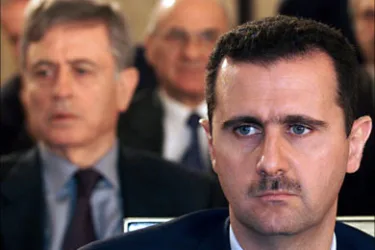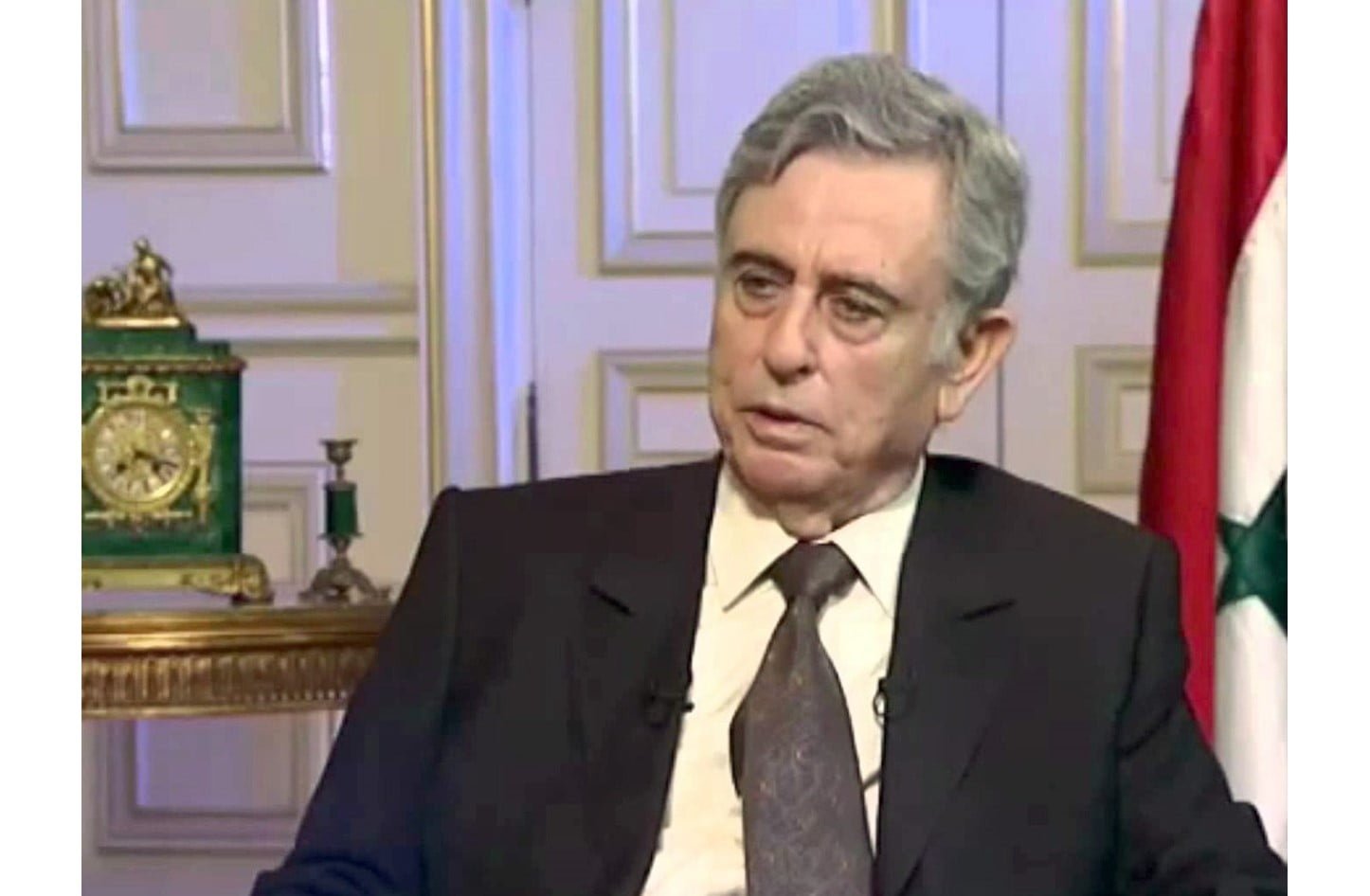Former Syrian Vice President Abdul Halim Khaddam believes that “Hezbollah” is an instrument for implementing Iran’s strategy and is used by Iran to harm Lebanon and the Lebanese people.
In an interview on the “Al-Mustaqbal” television program, Khaddam stated that the reference of “Hezbollah” is in Tehran, and therefore, the directives for its actions come from there. He emphasized that “Hezbollah’s” major mistake is that it is used to harm the Lebanese nation and its people. He affirmed that Iran aims to hold advanced positions in the region to defend its strategy, not only within its territory but through other forces as well. Iran’s strategy extends from the Mediterranean Sea to the middle of Asia.
Khaddam clarified that “Hezbollah” is one of the instruments for implementing Iran’s strategic plans. He compared it to the Iranian Revolutionary Guard and the Iranian Army, stating that “Hezbollah” is the same. The party claims its reference is Ayatollah Ali Khamenei, the Supreme Leader of the Islamic Revolution.
He mentioned that while “Hezbollah” played a significant role in liberating South Lebanon, its ideology surpasses national boundaries, justifying its use in activities unrelated to the Lebanese nation. He added that if the national issue were predominant, “Hezbollah” would not agree to be used to protect Syrian President Bashar al-Assad.
Khaddam also discussed the current situation in Lebanon, including the tensions caused by “Hezbollah’s” actions. He noted that the group’s actions, including its involvement in civil strife and other activities, are about protecting its interests. He expressed concern that the situation could escalate and become more dangerous if matters continue to worsen.
He highlighted that Iran’s influence in the region is a significant factor in these dynamics and mentioned the connection between the developments in Lebanon and the broader regional context.
Additionally, the General Observer of the Muslim Brotherhood in Syria, Ali Sadr al-Din al-Bayanouni, announced that the group is in the process of forming a political party when opportunities arise for party formation within the country. He clarified that they are not just a political party in the conventional sense, but an Islamic organization that engages in the duty of propagating Islam comprehensively, including various aspects of life beyond just worship in mosques. He stressed that their political activity is part of their overall engagement.
Al-Bayanouni explained that their intention to establish a political party aligns with the formation of political parties within the country. He emphasized that the party would be inclusive of all segments of Syrian society, encompassing different sects and ethnic groups. He stated that the party’s door would be open to anyone who believes in its principles and understands Islam in the comprehensive sense they promote.
He also expressed satisfaction with the external activities of the Syrian National Salvation Front, a group he founded alongside Khaddam and other opposition figures. He noted that while progress may be slow, their communication with foreign powers is more productive than their internal activities, which could be hindered by various factors.



